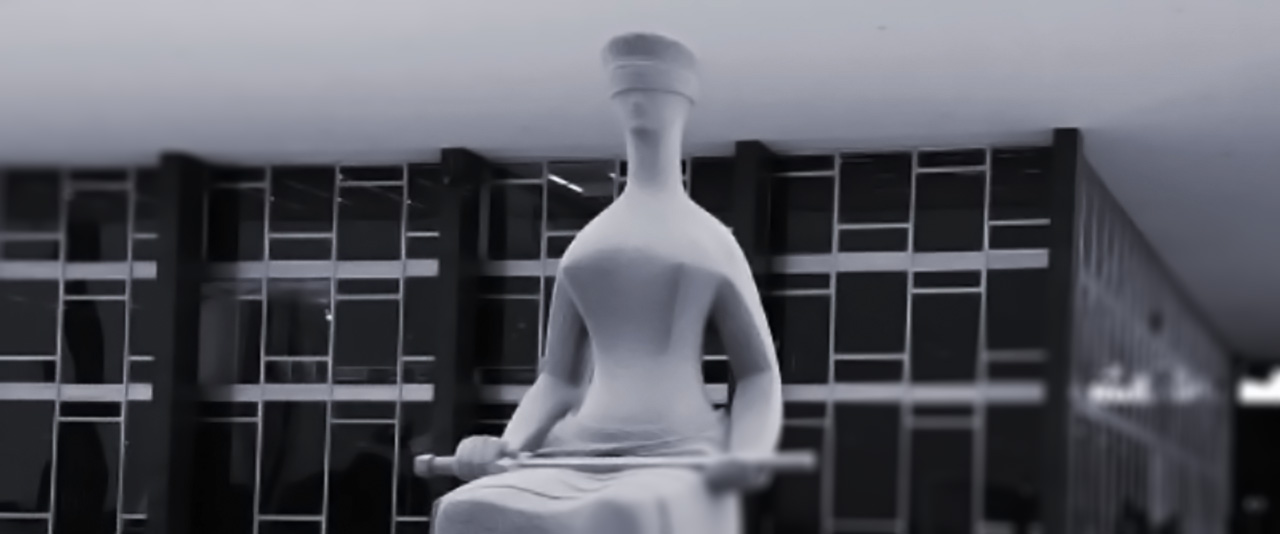Former São Paulo Mayor Fernando Haddad expected to take Lula’s place amidst worries that any leading candidate from the left will be barred on frivolous charges in order to protect US-supported petroleum interests and austerity in Brazil’s post-coup State of Exception.
August 31. In a hurried ruling which bypassed legal protocols, the Brazilian Supreme Electoral Court (TSE) barred Luiz Inácio Lula da Silva, who was leading by a wide margin in all polls, from running for President tonight in a 6-1 ruling.
In 2016, The TSE allowed 146 Mayoral Candidates to run for Office who were in identical stages of their appeals processes as Lula. 96 of them were elected and are still governing their cities.
In citing a controversial law called ficha limpa designed to prevent convicted criminals from running for office (which is routinely ignored and supposed to apply only when appeals processes are completed), the Court broke several laws of its own – most importantly MP 311/2009, which treats UN Human Rights Committee rulings as legally binding in Brazil. The UNHRC recently ruled that Brazil must respect Lula’s right to run for office.
The ignored UN ruling had been applauded by a growing body of political leaders, intellectuals and labor unions from around the world demanding that Lula be freed from what is widely perceived as a political imprisonment designed to keep him from being elected to the Presidency. Organizations and individuals who have called for Lula’s freedom and for his right to run for office be respected in recent weeks include the AFL-CIO, COSATU, Angela Davis, Noam Chomksy, Former Prime Ministers Francois Hollande and Michelle Bachelet, Former German Social Democrat Party leader Martin Schulz, US Senator Bernie Sanders and 28 US Congressmen.
On August 31, a Brazilian bipartisan group of intellectuals and former Cabinet Ministers from the Fernando Henrique Cardoso and Lula administrations sent an open letter to Supreme Electoral Court Justice Roberto Barrosso requesting that he respect international law and allow Lula to run for President, which was translated by Brasil Wire as follows:
We, Brazilian citizens who have always participated in public life, have a common interest in democracy, the guarantee of human rights, the legitimacy of the State, and Brazil’s international credibility.
Your Excellency has vigorously professed humanistic values in the past. In your book, A Dignidade da Pessoa Humana no Direito Constitucional Contemporâneo (The Dignity of the Human Person in Constitutional Law), you state that, “the globalization of law is an essential characteristic of the modern world which promotes, in its current stage, a confluence between constitutional law, international law and human rights. The national and international institutions aim to establish a framework for a contemporary utopia: a world of democracies, fair trade and the promotion of human rights.”
In this context, Your Excellency has spoken out on some occasions about the importance of the Brazilian state in complying with decisions issued by international institutions arising from international human rights treaties welcomed by Brazil.
In the judgment of a Point of Order, in which you discussed the legality of the free candidatures in the Brazilian political system, Your Excellency reiterated the supra-legal nature of the San José, Costa Rica Covenant. In the same sense, when you were participating in a Federal Senate hearing, Your Excellency said that the current jurisprudence strategy in the Federal Supreme Court is that international treaties have a supra-legal nature; they are above the law.
On August 17th, 2018, the UN Human Rights Committee, a treaty body of the Second Optional Protocol to the International Covenant on Civil and Political Rights, accepted the request for an injunction proposed by ex-President Luiz Inácio Lula da Silva through the intermediation of his lawyers. In the document of the High Commissioner of Human Rights which communicated the decision, it is emphasized that the Committee requests that the Brazilian State “take all necessary measures” to guarantee that the ex-President can exercise his political rights in the position of candidate – which included access to the press and members of his political party -”until his appeals processes in the court system are judged in a definitive manner in fair legal proceedings.”
We trust that Your Excellency, who has demonstrated a strong commitment with democracy and justice, will take these values into consideration while analyzing issues involving the candidacy of ex-President Lula.
Signed with assurances of the highest esteem and respect,
Sincerely,
Luiz Carlos Bresser-Pereira, ex-Minister of the Treasury, The Federal Administration and The Science and Technology Ministry
Celso Amorim, ex-Minister of Foreign Relations and Defense
Luiz Felipe Alencastro, Professor at the University of the Sorbonne and Fundação Getúlio Vargas
Paulo Sérgio Pinheiro, President of the UN Investigatory Commission on Syria and ex-Minister of the Human Rights Secretariat
Maria Vitoria de Mesquita Benevides, Professor at Universidade de São Paulo
Dalmo Abreu Dallari Professor at Universidade de São Paulo
Fábio Konder Comparato Professor at Universidade de São Paulo
Pedro Celestino Pereira, Engineer
[qpp]

